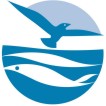A GIS-based hydrographic resurvey strategy of the Belgian Continental Shelf
Bos, N.; Dumon, G.; Verstraeten, J.; Claeys, F.; Waûters, F.; Eggermont, G. (2013). A GIS-based hydrographic resurvey strategy of the Belgian Continental Shelf, in: Van Lancker, V. et al. (Ed.) MARID 2013: Fourth International Conference on Marine and River Dune Dynamics. Bruges, Belgium, 15-17 April 2013. VLIZ Special Publication, 65: pp. 59-64
In: Van Lancker, V.; Garlan, T. (Ed.) (2013). MARID 2013: Fourth International Conference on Marine and River Dune Dynamics. Bruges, Belgium, 15-17 April 2013. VLIZ Special Publication, 65. Royal Belgian Institute of Natural Sciences/SHOM/Flanders Marine Institute (VLIZ): Oostende. ISBN 978-2-11-128352-7. 338 pp.
In: VLIZ Special Publication. Vlaams Instituut voor de Zee (VLIZ): Oostende. ISSN 1377-0950
|  |

